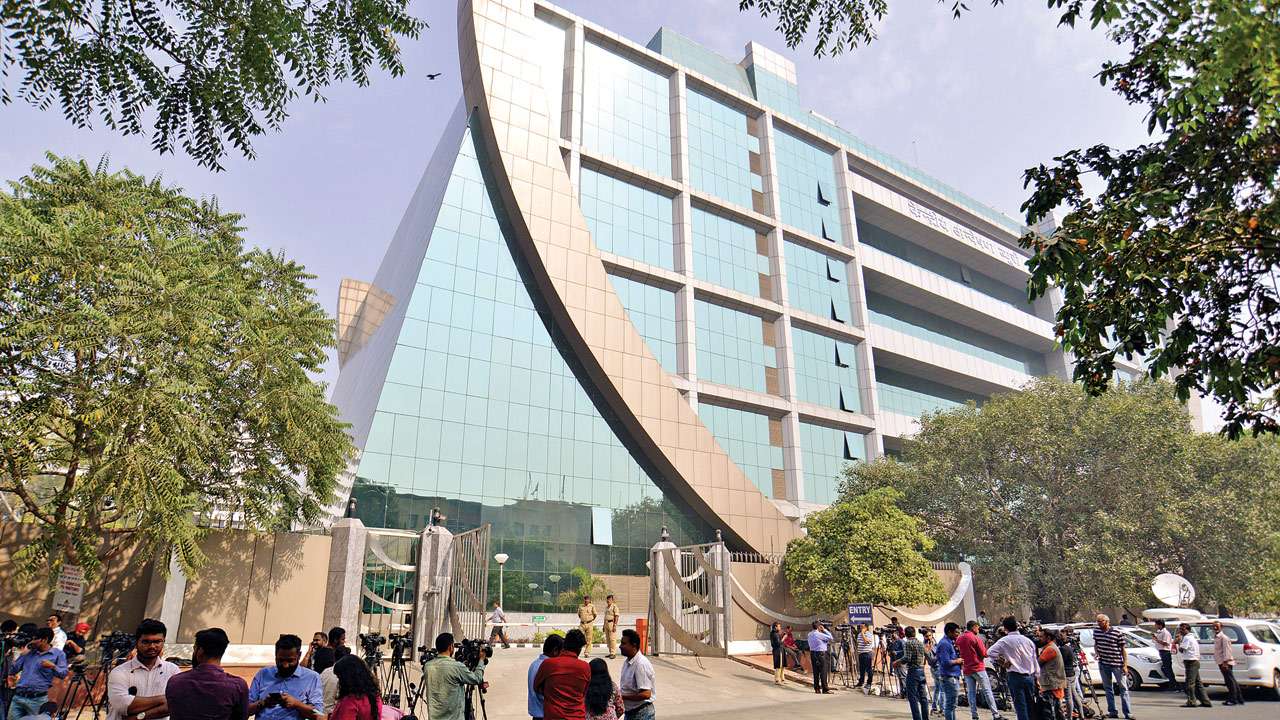
In a stunning development in the mid-night of October 23-24, CBI’s top two officials, Director and Special Director, were unprecedentedly divested of all their duties and sent on leave.
Before that, the prestigious headquarters of the agency, under express orders, was put under siege.
A Joint Director, given charge as “Interim Director”, reached the agency’s office in the middle night and soon after taking charge, either passed or implemented transfers orders of a number of officers handling sensitive cases.
When the matter reached the Supreme Court the next day, through the petition of CBI Director Alok Verma challenging the order, the apex court was constrained to restrain the ‘Interim Director”, from taking any major policy decisions, till further orders.
The Supreme Court has reserved its verdict on the legality of the order concerning Alok Verma and therefore, we shall refrain from saying anything till then on this subject.
But that is not the main concern. The concern is of the state in which CBI finds itself, as well as its future. This crisis is perhaps the worst of its kind since April 1, 1963, when the agency was founded by then Home Minister, Lal Bahadur Shastri.
It was under Shastri’s stewardship that the investigative agency’s solid foundations were laid to make CBI a trustworthy and efficient agency to probe cases of corruption.
Soon enough, the CBI acquired a high degree of professional reputation and won the confidence of the people for integrity and impartiality. Even more than judicial enquiry, there were frequent demands for a CBI investigation to bring out the truth. Sadly, that image of the agency lies in tatters today.
The CBI, no doubt, faced the severest challenge in the years preceding and during the Emergency when Sanjay Gandhi, a law unto himself, started calling the shots.
Emergency was a period of fear, intimidation raids and arrests, often illegally and in a high-handed manner.
In such an atmosphere, the agency’s problems were compounded. Things reached such a pass that even other government agencies started to conduct searches and raids in its name.
The Rajiv era started well with his ‘Mr Clean’ image, but soon got embroiled in the Bofors controversy with its fall out evident on the CBI. The agency breathed a sigh of relief in the VP Singh era. But Singh’s tenure came to end in a short time. The CBI faced, to put it bluntly, a horrible time under the Chandrasekhar and Narsimha Rao governments, with the likes of Chandraswami calling the shots.
This writer, on a second term to the CBI, was thrown out of the agency unceremoniously for a second time for standing up to corrupt and brazen political interference in investigation work. At this point of time, even the apex court failed to provide relief for saving the honour of an individual and the organization.
But never before has the CBI faced problems such as today. The genesis of the troubles could be traced back to September, 2016 when the then Director, CBI was scheduled to retire.
RK Datta, the senior-most Special Director, a tried and tested hand with long experience, was on the cusp of succeeding him. But the powers that be, suddenly transferred him out as Special Secretary, Ministry of Home Affairs, against a non-existent post, only a few days before the Director superannuated. Luckily, his Karnataka cadre came to his rescue and took him back as Director General of the state police.
This set off quite an avoidable controversy regarding matters of further placement as Number 1 and Number 2 in the organization.
On October 15, the CBI registered a regular case against its own Special Director allegedly for accepting a huge bribe from someone under investigation.
The Special Director had, in turn, earlier on August 24 lodged a complaint with the Union Cabinet Secretary, making allegations of similar nature against the Director, Alok Verma. But the situation had not yet spun out of control, had the government of the day intervened and taken matters in its hand.
But it was hamstrung for two reasons. First, what was happening was largely of the government’s own making. Some provisions in the Central Vigilance Commission (CVC) Act of 2003, giving it jurisdiction over the CBI in matters of governance, has led to more problems than the government had bargained for. Neither was this overlapping envisaged by the agency’s founder Lal Bahadur Shastri.
The CVC Act, no doubt, provides some valuable safeguards for the agency, but it has also created some impediments in its work. It has vested in the Central Vigilance Commission the ‘superintendence’ of the Delhi Police Establishment, (and thus the CBI) in relation to investigation cases under the Prevention of Corruption Act, 1988.
For the remaining areas, the Act leaves ‘superintendence’ to the government. So the ‘superintendence’ over the CBI is today shared between the CVC and the government. An absurd proposition, if any existed.
Thus while the answerability ‘for CBI’s functioning’, is with the government, the power of ‘superintendence’ lies with the CVC. The present crisis owes a lot to this diarchic arrangement in the CVC Act of 2003. A lot of effort is now needed to redeem the honour and prestige of this premier investigating agency.
Author is former Joint Director, CBI